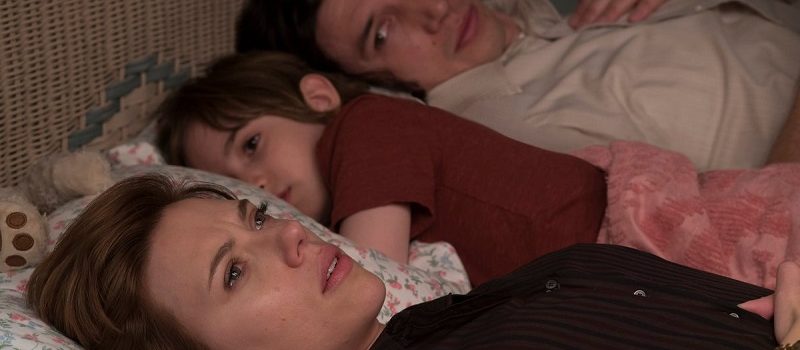Believe the hype, Marriage Story is fantastic … but it will break your heart. Adam Driver and Scarlett Johansson give the performances of their lives as Nicole and Charlie, a couple with a little boy whose marriage is on its last legs. The flick is loosely based on the real life love fallout of writer-director Noah Baumbach and that tragic intimacy and personal pain is felt throughout. You know what else? It’s got a sense of humor that was the most surprising aspect of Netflix’s latest contribution to full on Oscar buzz.
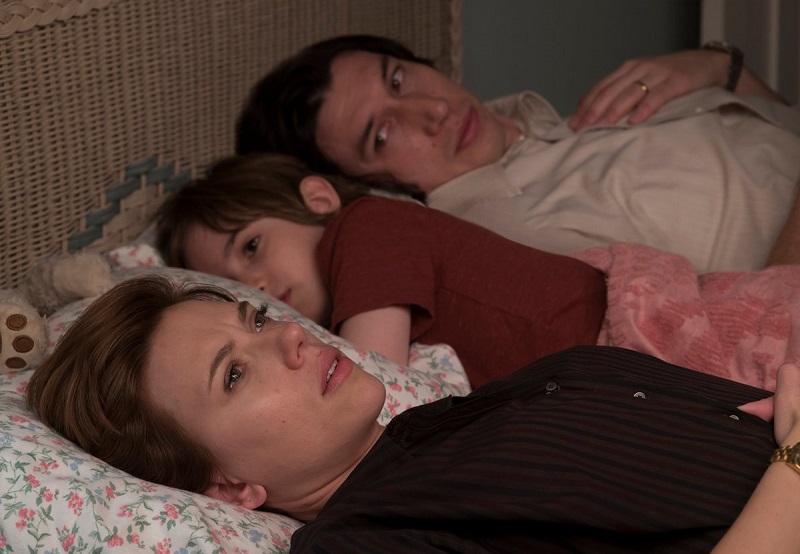
The insight that is offered into this coupling is doled out efficiently throughout Baumbach’s latest. We are only told what we need to know at the time that the information is presented through his trademark whip smart dialogue. Driver’s Charlie an in-demand New York City based director. Johansson’s Nicole was a young actress who was notoriously known for her role in a hit college comedy flick that history has made more well known for her exposing her breasts than her talent. Although the movie offers were coming in after the release of that film, when she met Charlie, he made her a part of his theater company. Her reputation as a thespian exponentially improved as their marriage progressed. His stature in the theatrical community of New York City grew as well.
But something was and is off. She’s not happy. The California born and raised actress is eager to head back to her home state, a locale that Charlie keeps saying, “someday,” yet that moment never seems to arrive. When she’s offered a role in a promising pilot, she takes it and he believes it’ll be temporary. Turns out, they get separated and Nicole makes it clear that Los Angeles is her future, and their son’s too. Catching Charlie off guard (who probably thought their separation would go on until after the pilot and she’d return home), he gets served those delightful divorce papers and ever supportive, he takes them and wishes her well in California.
He might be in denial. Although they agreed no lawyers, as soon as she gets settled in LA, she retains one of the bigger divorce attorneys in the business, Nora Fanshaw (Laura Dern). That sends this entire back and forth between husband and wife (with child caught in the crossfire) into places all couples vow to never explore. Given that she and their son are in Los Angeles, Charlie must find a west coast attorney, just as his play is announced to be moving to Broadway (he also learns that he is awarded an enormous and prestigious grant). Attorney Bert Spitz (Alan Alda) makes a slew of recommendations, of which Charlie follows (such as get a LA apartment) and this thing gets more and more thorny.
It’s such a study in truth, which is no surprise given Baumbach’s history of raw cinematic stories that hit close to home with their audiences. One of the first truths that comes to light is how divorcing couples may have the best of intentions, but once lawyers get involved, these proceedings have a habit of escalating the emotive gut punches. It is striking to witness in Marriage Story how two people that had such an affinity for one another, can find themselves in realms that are more hate than love … and quickly.
The institution of divorce is a nasty breed of human suffering that is intricately complicated. It is a hybrid of legal necessity, all wrapped in deeply personal sentiments that can cut more painfully and deeper than an assailant’s knife. As someone who has lived through parents that divorced, it should not surprise. Yet it still does. There is something inherently institutional that generates interpersonal horrors between people who at one time broadly smiled and even spewed tears of joy when uttering the words, “till death do us part.”
As showcased in Marriage Story, those who go through the dreadful endeavor can carry wounds from the process that make it impossible to think clearly and even consider “the big picture” … especially with the children. Ironically, that is the exact thing that is ideally required of both parties. It’s a horror show. With Baumbach’s film, the complexities may seem like real “First World” problems, i.e. Charlie having to fly back and forth to see his son and endure the divorce proceedings while it drains his bank account, decimates his grant money and potentially tear apart his beloved theater company that has been chugging along nicely for a decade. But as the filmmaker spotlights it, what everyone who experiences the very process that Charlie and Nicole endure may specifically be different, yet in the hands of Johansson and Driver, it is keenly, impeccably and brilliantly relatable.
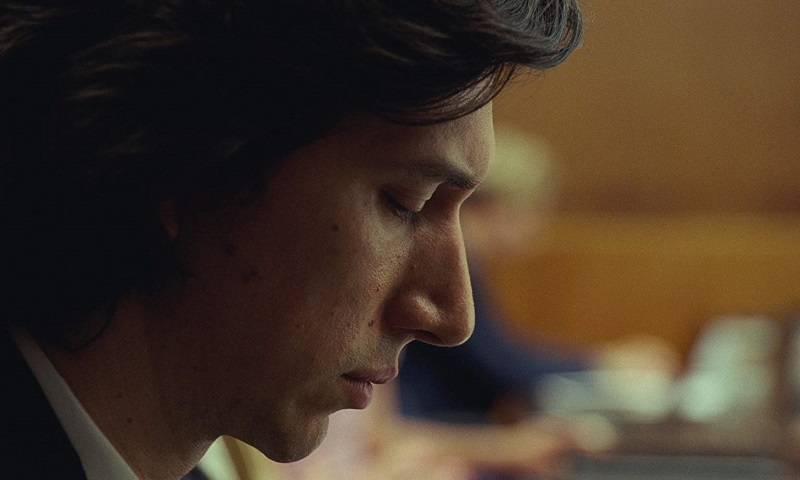
So much credit must be given to both actors. They are sublime. It is heartbreaking to witness their journey down the divorce rabbit hole. The job that each does with their characterization is so endearing, that we inherently want both to find joy and neither to suffer any emotional lacerations at the hand of the other. That wish is impossible, a fool’s errand. Baumbach has crafted something that there is no hiding from, it is crushing. I’m not embarrassed to say that uncontrollable sobbing is one byproduct of the Marriage Story audience experience. Others include a profound respect for the institution of marriage and those who can make it work, a marveling at those who can go through the loathsome “D” word and remain friendly and a hope that millions who witness Johansson and Driver’s masterwork can emulate their raw honesty with one another that never involved their son’s little ears hearing such big issues.
Both performers should hear their names called for Oscar nominations. Although given the Academy’s spotted history of awarding one thespian, believing that its excellence was achieved in a vacuum, one never knows. Johansson has never culled the emotive spectrum as she does so triumphantly and tragically in Marriage Story. As compelling and commanding as she is as Nicole, Driver’s dive into Charlie is what honestly triggered the sobbing. He utters, at one point, something about how he cannot believe that he will never be the same parent to his son as he was as a married father. It’s true. There will be full days, maybe even weeks at times, where he not only doesn’t get to wake up in the same home as his boy but will not share space with the single most important thing in his world in the same manner again. Sure, it’s the nature of the divorce beast, but it’s the facet that has most parents sharing sentiment of remorse and that uneasy feeling like a part of you has perished. In fact, it has, and it must be mourned.
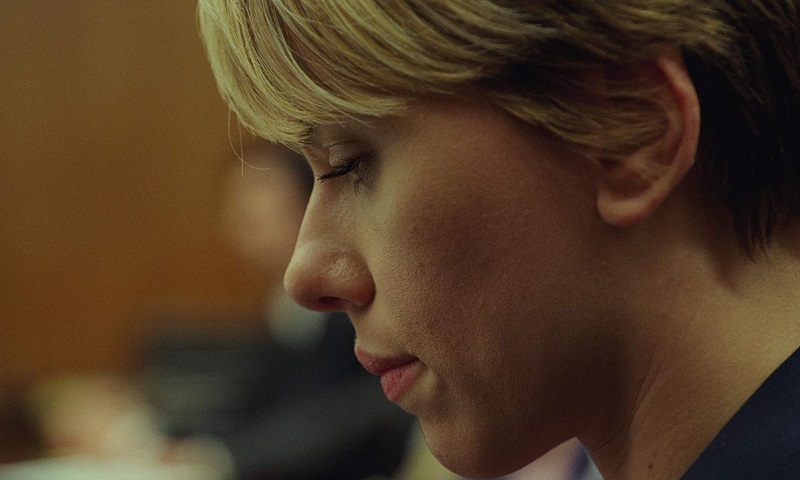
The supporting cast is stunning. Dern is getting loads of Oscar buzz for Supporting Actress for her turn as the raw, but real divorce attorney. Through her role, Baumbach is able to provide a grounded reality, legally and culturally in many ways. It is through Dern’s divine gifts that it comes alive and there are no villains here, but every story needs an antagonist. I have a hard time labeling her character that because she is just really good at her job, she always has her client’s best intentions and above all else—she knows why her moniker alone gets the other side nervous in divorce proceedings. Not only is Dern likely to get nominated, at this point—I think she will win.
Meanwhile, Alda is a delight. Although he is fighting Parkinson’s he was able to find the strength to work and bring layers of legal and emotional support for Charlie that is a priceless contribution to the entire scope of the film itself. The opposite end of things finds Ray Liotta’s Jay—the legal match to Dern’s Nora. He is the guy who gets called when things get nasty.
Baumbach deserves some major kudos. Not simply for turning in a stellar script and directing the heck out of this deeply personal tale. But for that latter part … how he was able to open his heart (and mind) and put on the page (and thus on the screen) the raw reality that is divorce. Since the divorce rate is 50-percent, that is a huge swath of the audience that will identify with his experience captured for the cinema. How many more are children of divorce and thus can find congruency with the Nicole and Charlie coming apart? The filmmaker clearly took that part of bringing his story to life quite seriously. It is deeply personal what he has crafted. But it will also be equally as so for countless witnessing his latest.
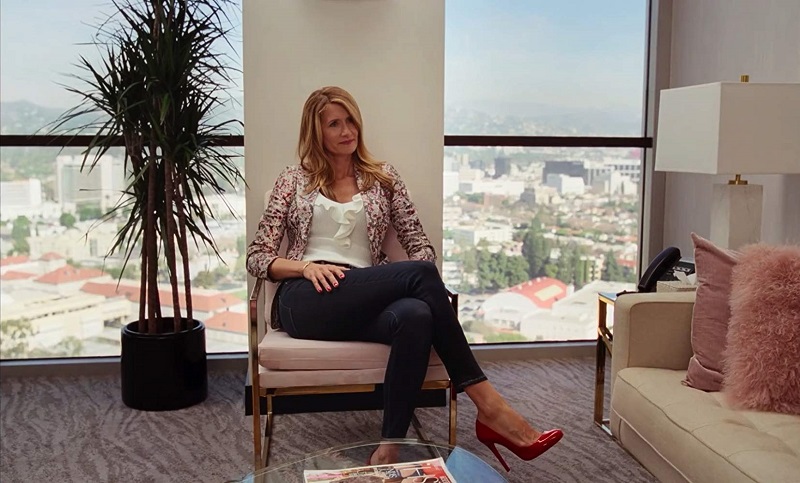
That aspect may be the greatest gift off all that Baumbach has bestowed on his audience.
Grade: A+

